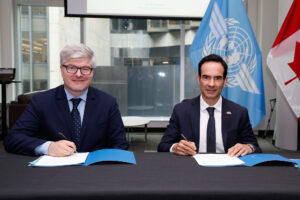
Now, more than ever, sustainability
News
Sustainability is defined as the development that ensures the needs of the present without compromising the needs of future generations.
In the current situation that we live in practically the whole of Europe and part of the world, under a state of alarm, it is more necessary than ever for companies to operate sustainably.
Italy, Spain and France are, in that order, the countries that top the list of those affected by the coronavirus pandemic that spread from China and which, in the Italian case, already exceeds the figures of the country in which the outbreak of the virus. However, no country in the European Union is free from the disease anymore and all the Member States are taking measures to face the health emergency and the economic crisis that it entails.
How is this crisis being fought?
Regarding the measures to fight this crisis, as we have previously commented, the Member States are launching billionaire economic aid packages to help workers and companies maintain liquidity.
Also, companies have different mechanisms such as guarantees and soft loans, moratoriums on credit payments, the reduction of working hours or the so-called ERTE (Temporary Employment Regulation File) which consists of an authorization received by a company to stop to be able to temporarily suspend the employment contracts of its employees. The employee is still linked to the company, however, he is in a special regime in which he does not receive from the company or generate the right to extra payments or vacations.
It is evident that, in the face of this standstill situation, only those companies with a great management capacity and a great financial muscle will be able to face the scenario characterized by an absolute lack of income and thus achieve their survival.
Anticipating the consequences
When in doubt of what basic aspects a contingency plan should include, experts point to the need to take into account different scenarios for the evolution of the crisis in the short and medium term. In this way, companies can be prepared in all possible time frames and before different types of severity of the situation.
The economic impact of COVID-19 can lead the company to make decisions to guarantee its liquidity. In the short term, in a scenario of virus containment, experts first recommend defining several stress test models, in which the different variables that may affect the company’s financial statements are analyzed. A medium-term measure could go through cost reduction and cash management through cost savings; and even, in a more complex scenario, the activation of liquidity generation levers through measures such as the sale of assets or leverage.
All these considerations must be reflected in a revised liquidity profile, which would include the evaluation of any new working capital dynamics, in addition to maintaining a short-term cash forecast.
What steps has each country taken so far?
These are some examples of the measures that various European countries have taken:
Germany: Government and regions have agreed to partially close German public life, although essential establishments remain open.
Austria: The Austrian government will launch a 4 billion euro aid package to cope with the economic consequences of the coronavirus pandemic.
Belgium: Schools, cafes, restaurants and some shops have been closed due to the coronavirus, following decisions by France and other European countries to limit all but essential activities.
Spain: The government has declared a state of alarm until April 11 and has mobilized 200,000 million euros to fight the crisis.
Finland: Measures have been announced to initiate the closure of its borders and schools as part of an emergency legislative package.
France: France has started a 15-day quarantine, and the Government has mobilized 45,000 million to help workers and companies and liquidity for 300,000.
Greece: Has ordered the closure of most shops. Only supermarkets, pharmacies, gas stations, auto repair shops and banks remain open.
Ireland: Ireland has not yet decided whether or not to participate in the EU travel ban.
Italy: Remains in quarantine Spain and its Government has announced a package of aid for an amount of 25,000 million. Its death toll already exceeds that of China.
The Netherlands: Primary and secondary schools, secondary vocational schools and kindergartens will be closed until April 6.
Portugal: Portugal has declared a state of national emergency until April 2.
CONTACT info@itaerea.com +34 968 966 885 TEACHERS TRAINING





